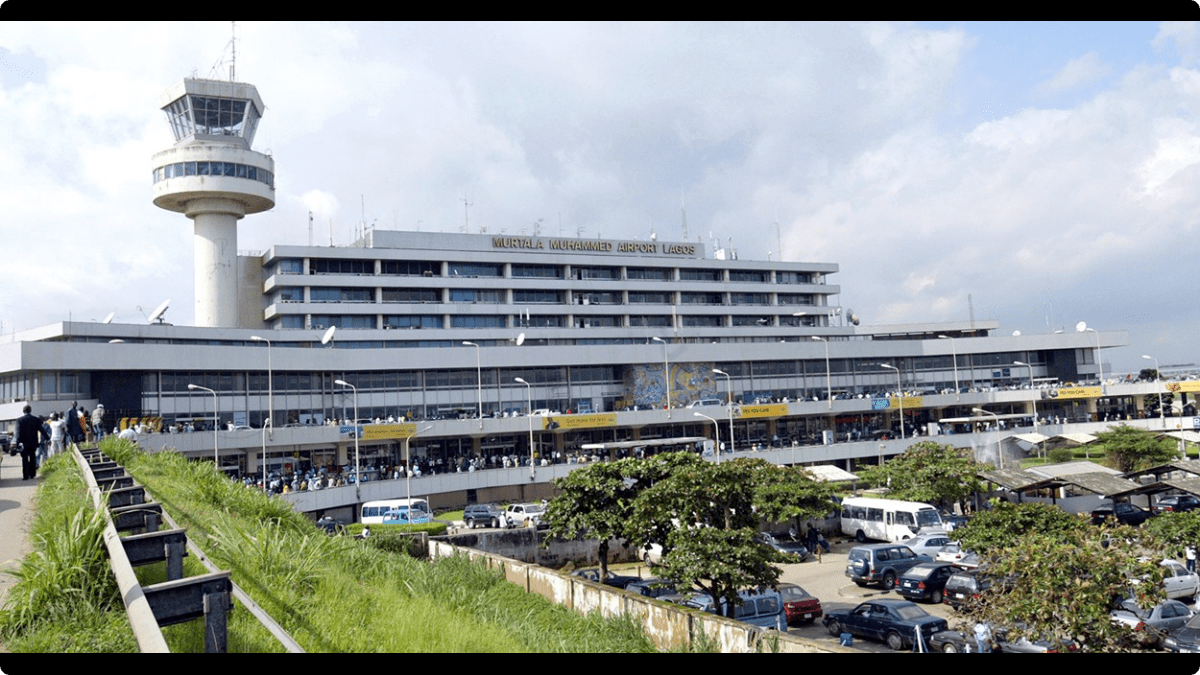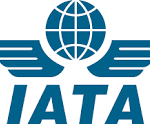
Industry stakeholders review the aviation industry on the 58 years of Nigeria’s independence and say Nigeria could do better; although the country has recorded milestones in the sector since its libration from colonial rule.
As the nation clocks 58 years, industry stakeholders are of the view that there have been achievements in the aviation industry but so much still needs to be done for the country to meet international standards and expectations.
They pointed out four critical things a country needs in order to have successful and robust aviation industry. One is airport infrastructure, two, viable airlines, three, adequate manpower and four, favourable aviation policies and regulations.
The stakeholders noted that since 1958 when Nigeria Airways was established, Nigeria has had high number of airlines that operated both domestic and international routes; but since the demise of the national carrier, the country has not had domestic carriers that successfully operate international routes for a long time. So the hiccups associated with Nigeria airlines, from their short life span to their inability to acquire modern aircraft are attributed to lack of corporate governance, poor business plan, inadequate infrastructure and inimical government policies.
Airline operators and other Nigerians have decried inadequate airport facilities and suggested that the best option is to concession these airports in order to attract private investment in the modernization and expansion of airport facilities. They also noted that government policies seem to retard the growth of domestic airlines because it tends to favour foreign airlines that operate into the country.
Forward and Backward
The Chief Executive Officer of Aero Contractors, Captain Ado Sanusi, told THISDAY that a lot have been achieved in the aviation industry since the nation’s independence but lamented that certain advancements were halted by either lack of vision, lack of political will or counterproductive government policies.
“Looking at the Nigerian aviation industry since independence, I think a lot have been achieved in perspective, but we have really moved forward and backwards. In terms of infrastructure, the airports that were built in recent times were those built by the states or private concerns. The federal government has not built any new airport for several years. What has been going on is that government has been renovating existing airports and even the airport that was built in Abuja by Julius Berger was not completed. The design was that the airport was to be extended by adding more facilities but this was not done and recently a new terminal was built there by the Chinese,” he said.

Sanusi lamented that Nigeria does not have formidable airline that can compete effectively with others in the world, but gave kudos to the country for the improvement in regulations, but noted that overall implementation has been poor.
“Nigeria does not have a formidable airline that can compete with international carriers; so we have not achieved anything in that area. In terms of regulating the industry, we have the best regulatory policies which we copied from the advanced nations but we have not been able to implement these policies efficiently. So the problem is implementation,” Sanusi said.
Deregulation
Former Director of Engineering, Medview Airline, Lukeman Animaseun x-rayed the industry since independent and said the sector marked a turnaround when the federal government deregulated the aviation industry and allowed private investors to float commercial airlines. This gave rise to competition, low air fares and made more aircraft available to meet the demand of air travellers.
“One can say that up till early 1980s government owned the only national carrier that we had but after deregulation Okada Air and other airlines were born and their presence added colour to the industry. Government did not operate Nigeria Airways Limited (NAL) as a profitable organisation and that was why the airline did not do well, necessitating the deregulation of the market,” Animaseun said.
He recalled that one of the major problems of NAL was that there was too much government interference and the managing directors of the company were employed and sacked at whim; many of them not staying long enough to make any significant change.
“Do you know that there was a time Ethiopia Airlines was sending some of its personnel to Nigeria Airways for training? There was lack of stable policies in the industry then which undermined the growth of the sector, but in the 1990s when government seemed to have become serious about the national carrier and the aviation industry, there was lack of political will to make the desired changes. Succeeding governments were not ready to take critical decisions that would transform the industry. That was when some other African countries began to leave us behind,” he said.
Animaseun said currently Nigeria does not have a major airline that can effectively represent it in the international travel market “because privately owned airlines lack the capacity that Nigeria deserves”, noting that with the kind of policy Nigeria is operating in the industry, it would be difficult for privately owned commercial airlines to succeed, “unless government would review bilateral air service agreement (BASA) and multidesignation policies.”
“The only way Nigeria can have airline that has capacity is if government established its own airline. So we still need government to midwife a national carrier for us,” Animaseun said.
On Infrastructure he said that Nigeria has very poor airport facilities because government was not modernizing or upgrading airport infrastructure, remarking that lack of airport facilities has hindered the growth of air transport across the country.
“How many of these airports have comprehensive navigational aids. In London at any whether aircraft land and take off, but even here that nature is kind to us, we cannot operate to many airports in the country in the night,” Animaseun said.
Also the CEO of Aglow Limited, aviation consulting firm, Tayo Ojuri said the aviation industry in Nigeria is yet to grow to a level that it could compete with major countries of the world.
“The aviation industry in Nigeria is still in its infancy. There is lack of infrastructure, there is lack of enabling environment and the sector is wracked by policy summersault. The aviation industry is supposed to be catalyst to economic growth. We have the geographical location; we have the population so we need a quicker way of moving passenger and cargo to grow the economy. So infrastructural deficiency is making the industry not to function the way it should. That is why it is difficult to meet world standards in many areas of the sector,” he said.
Poor Capacity
Travel expert, Ikechi Uko told THISDAY that Nigeria has recorded achievements in the aviation industry and noted that there was a time Nigeria dominated the air transport industry in Africa, running the biggest airline and having huge manpower; that Nigeria provided the personnel for the region’s aviation institutions, which still subsist in some areas.
But he also remarked that in overall evaluation of the industry one could say that government has failed in some areas because there has not been systematic growth of the sector.
Uko said that when considered the humongous amount of money Nigerian travellers spend on flights and also consider the fact that almost all the airlines that operate international destinations are foreign carriers, it becomes saddening that about 90 per cent of that huge money is leaving the country.
“In comparison, we cannot beat our chest and say we have achieved much. Government has failed in many ways because there is no systematic growth in the industry. A Nigerian traveller will spend about N1.9 million for a business class ticket but carried by a non-Nigerian carrier and people who provide that service are not totally Nigerians, so we are not gaining so much from the industry that should be all ours,” he said.
On airport infrastructure he said government should have a target to either build a hub or an airport with the highest passenger capacity, considering the fact that the country is strategically located.
“We are in the best position to link West hemisphere to East. Nigeria can employ a lot of people that will be supported by businesses at the airports. MMA2 (Lagos domestic airport terminal) used to be the best in West Africa but today Senegal and Ghana have moved ahead in terms of the best airport in the sub-region. Airports generate revenue that is about 20 per cent more than airlines, so we can grow passenger movement from the current five million (international flights) to 20 million in three years. Ghana went up from three million to five million within the same period,” he said,
Safety and Security
Industry consultant and CEO of Belujane Konsult, Chris Aligbe said that the aviation industry was set up at independence to provide social services to mark the birth of a new nation. Everything about aviation was domiciled in the Ministry which performed functions as it was set up to do.
“But with the incursion of the Military things changed, but up to that point things were working well. The Nigeria Airways was doing well. It was meant to provide social services but not as a business concern. By 1980s the industry had started changing at the global level. Then many countries had national carrier, but Britain was the first to go into privatisation of British Airways when Margret Thatcher was the Prime Minister,” Aligbe recalled.
He noted that it was under the General Ibrahim Babangida (retd) administration that the aviation industry was liberalised and new airlines funded by entrepreneurs started business.
“But this placed new demands on the airport infrastructure as more flights become available; however, travel became a little easier and cheaper,” he said.
According to Aligbe, the first devaluation of the naira created problem for Nigerian airlines and then there was no serious regulatory system so the regulatory demand of the environment was not being met, over time the airlines started showing signs of weakness; so Okada Air which had the largest fleet in Africa became moribund.

“Starting from the middle of 1990s we have advanced on safety regulations. Hitherto, the Nigerian airspace was declared unsafe, one of the worst in the world, but today we can beat our chest that we have a very safe airspace. In terms of regulation, we have advanced a lot. What is still behind is airport infrastructure and I fully support the federal government plan to concession the airports,” Aligbe said.
For the stakeholders, a lot needs to be done to make the Nigerian aviation industry globally competitive.
THISDAY






